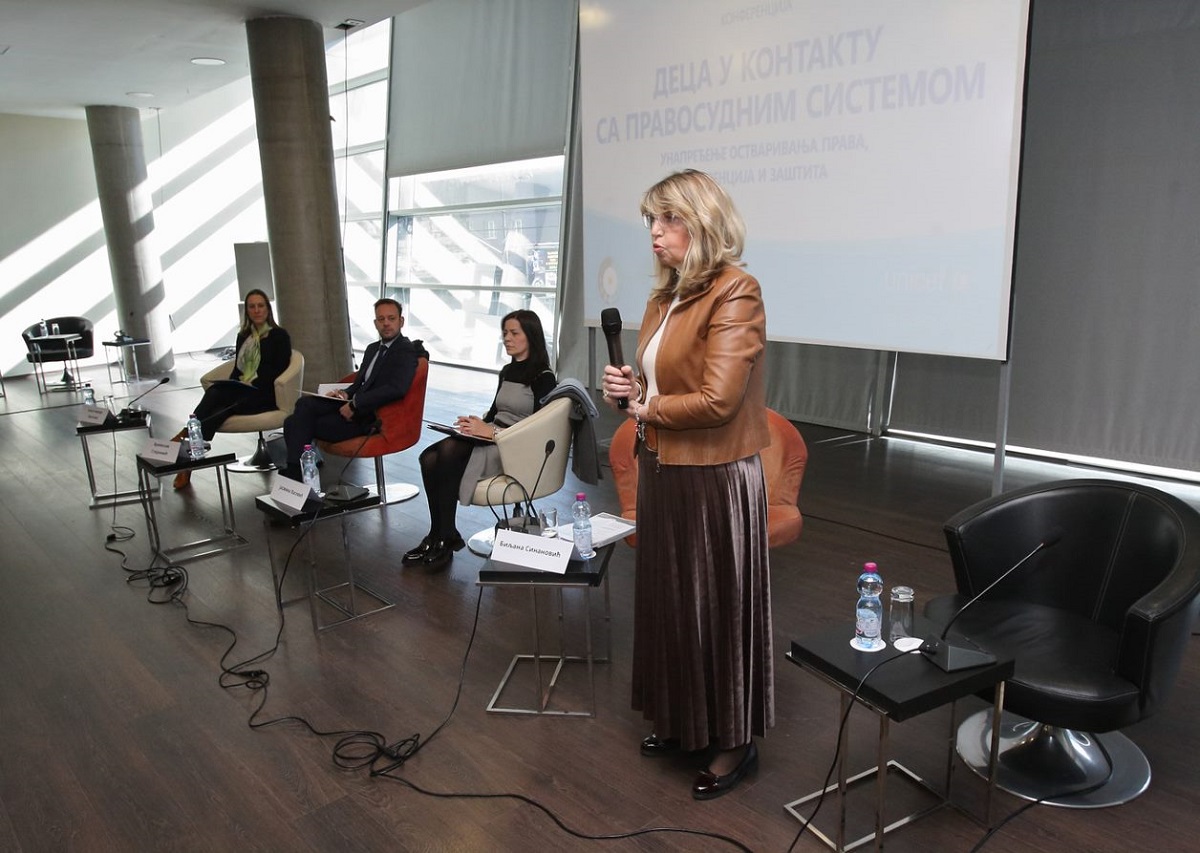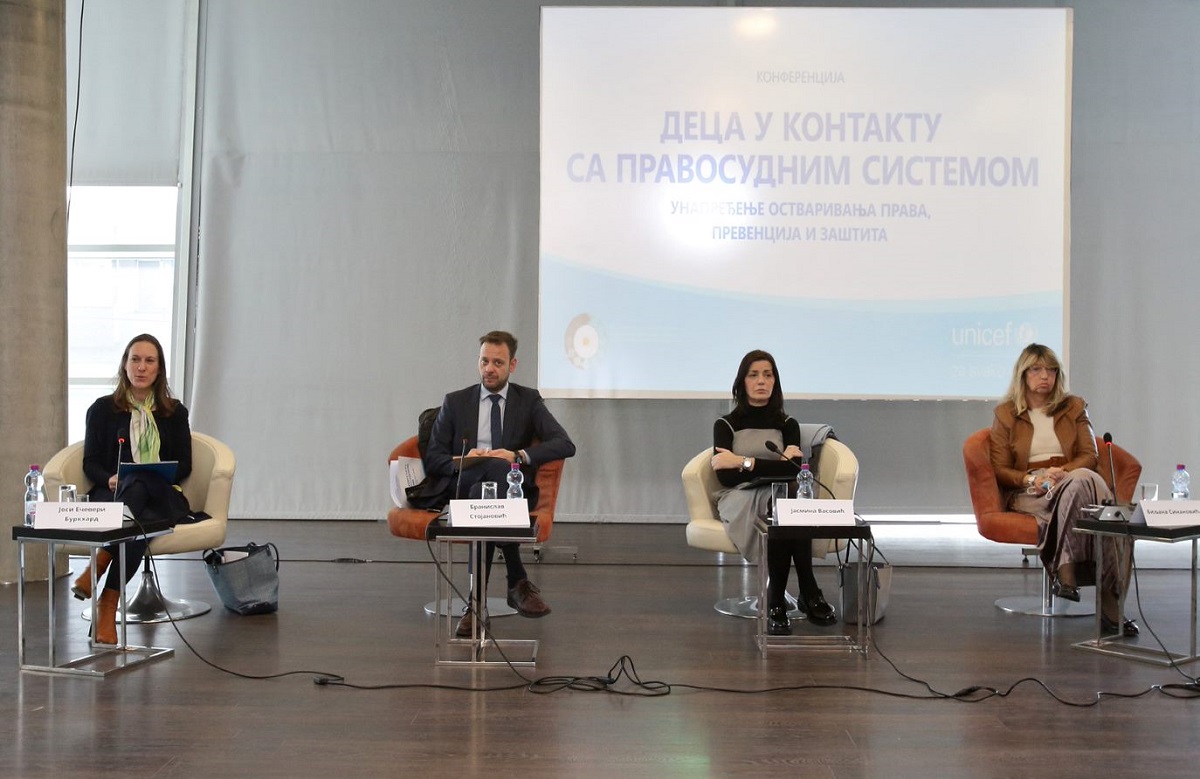Council for monitoring and improving the work of criminal procedure authorities and the execution of criminal sanctions against minors

The Council for Monitoring and Improving the Work of Criminal Procedure Bodies and the Execution of Criminal Sanctions against Minors was established by the decision of the Minister of Justice and the President of the Supreme Court of Cassation on January 25, 2018.
Ministry of Justice and Supreme Court of Cassation in March 2018, they re-established the Council for Minors, which consists of experts from judicial authorities - judges and prosecutors, representatives of the relevant ministries - justice, social protection and internal affairs, as well as lawyers.
The scope of the Council's work refers to the submission of initiatives, proposals, opinions and analyzes related to the delinquency of minors and the protection of minors in criminal proceedings - children as victims and witnesses of criminal acts, to the Ministry of Justice and the Supreme Court of Cassation in order to improve the law, policy and practice in this area.
The administrative office of the Council for Minors consists of Judicial Academy.
The constitutive session of the Council for Minors was held on April 27, 2108, when a judge of the Supreme Court of Cassation was elected as the president. Biljana Sinanović.
At the meeting on June 8, 2018, plans were discussed for the future work of the Council for Minors, which has great expert potential for research, monitoring the work of competent authorities and lobbying at the state level in order to improve the justice system tailored to the child.

Members:
- Biljana Sinanović, judge Supreme Court of Cassation
- Savo Đurđić, judge Court of Appeal
- Suzana Grujović, judge of the Higher Court in Kragujevac
- Vera Sofrenović, judge of the High Court in Belgrade
- Slobodan Radovanović, deputy Republic Public Prosecutor
- Gordana Stojanović Milošević, Deputy Appellate Public Prosecutor
- Aleksandra Stepanovic, Directorate for the Execution of Criminal Sanctions, Ministry of Justice
- Olivera Zečević, Head of the Department for Prevention and Suppression of Juvenile Delinquency in the Crime Suppression Service, Ministry of Interior
- Kalaba Milka, independent advisor in Sector for family care and social protection
- Aleksandar Cvejić, lawyer
- Nenad Vujić, director of the Judicial Academy
The scope of work of the Council is to monitor the implementation of the provisions of the Law and other by-laws and to initiate their implementation.
Belgrade, March 9, 2022
Council for monitoring and improving the work of criminal procedure authorities and enforcement of criminal sanctions against minors, in partnership withUNICEF, organized an annual conference dedicated to improving the rights of children in contact with the justice system, on February 24 and 25, 2022, in Belgrade.


NEWS about this event can be viewed here
RTS - Morning program, February 8, 2021.
Children as witnesses or victims in criminal proceedings are always a sensitive topic, Gordana Stojanović Milošević, a member of the Council for Minors, told RTS. He assesses that the child, as a victim of a criminal act, is already sufficiently injured by the criminal act itself, and that witnessing and taking statements should take place under special conditions.
Meeting with the police, the prosecutor's office, the court is often difficult for children to bear. They must not be in a situation where they have to talk ten times about what happened to them - to the gynecologist, the social worker, the police, the prosecutor, the court, the experts... to feel as if they are alone in the world, that no one is there for them. she does not believe that they themselves are to blame for what happened.
RTS - Morning program, March 1, 2021.
Reporting on children - The Juvenile Council has suggestions for journalists
Nenad Vujić, a member of the Council for Minors, told RTS that there are certain rules according to international standards and conventions, but also according to our law, namely that proceedings involving children are closed to the public. Vujić says that the Council sends proposals to media houses and the regulatory body, and the idea is to consider the boundaries and the public's need to know certain things.
The Council for Minors recently invited all media, journalist associations and the Regulatory Body for Electronic Media to discuss all problems in reporting on children and minors, whether they are actors, perpetrators, witnesses or victims of criminal acts.
This expert body was appointed by the Ministry of Justice and the Supreme Court of Cassation.
Nenad Vujić, director of the Judicial Academy and a member of the Council, said that the meeting was not held, but that he hopes it will be held soon either through the platform of the Judicial Academy or as a round table where there will be representatives of the media and the regulatory body. , in order to consider certain problems related to the reporting of proceedings involving minor offenders or victims, as well as children from conflicts in family relationships.
Vujić points out that there are certain rules according to international standards and conventions, but also according to our law, which is that proceedings involving children, persons up to the age of 18, are closed to the public, and the public must be excluded from the media as well.

